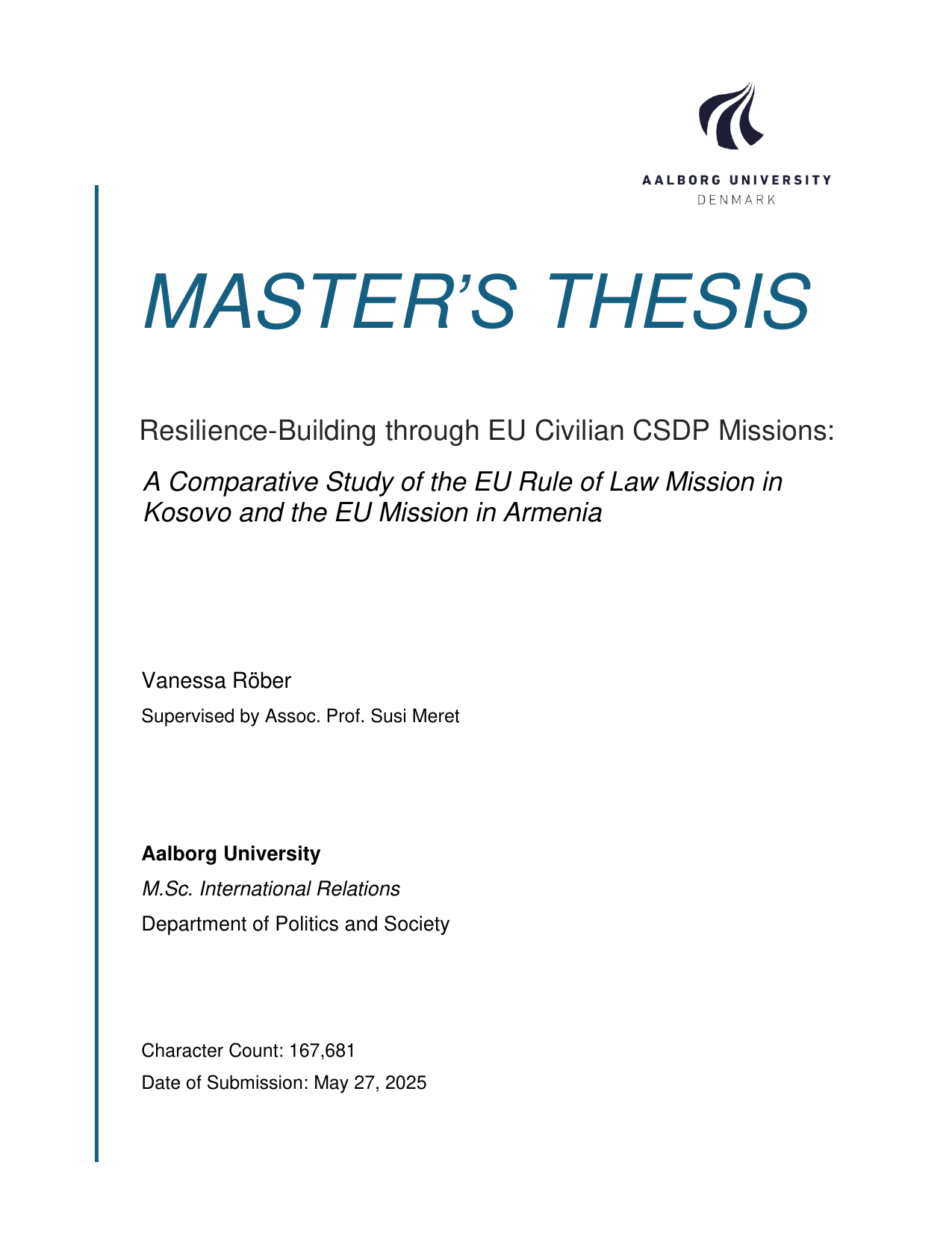
Resilience-Building through EU Civilian CSDP Missions: A Comparative Study of the EU Rule of Law Mission in Kosovo and the EU Mission in Armenia
Author
Term
4. semester
Education
Publication year
2025
Submitted on
2025-05-27
Abstract
The term resilience was only recently established in the field of global politics. It is believed that resilience can create a link between short-term emergency efforts and long-term development strategies. To make a country and its citizens resilient, the national institutions need to have effective self-governing capacities. The Common Security and Defence Policy (CSDP) of the European Union (EU) was established to build EU capacities for autonomous operations in reaction to international crises. A unique feature is its Civilian Crisis Management through non-military, civilian missions. The growing instability in the EU’s neighbourhood highlights the geopolitical relevance of assessing the impact and effectiveness of the EU’s external operations. However, resilience has barely been addressed in current research concerning the civilian CSDP missions. Through a comparative case study of the EU Rule of Law Mission in Kosovo (EULEX) and the EU Mission in Armenia (EUMA), this thesis aims to analyse the effectiveness of civil CSDP missions in fostering institutional resilience to enable successful self-governance in geopolitically contested environments. The cases differ in almost all but one variable. Both missions aim to stabilise and secure the situation in their respective region, intending to make the countries resilient enough to settle the conflict independently. EULEX was built to assist with the establishment of well-developed rule of law institutions in the country and to ease the conflict with Serbia that leads to ethnic disputes and heavy conflicts in the bordering regions. EUMA was set up to report border incidents to the EU because of severe tensions and territorial disputes with Azerbaijan. The most different system design is applied to examine the cases through a qualitative document analysis of anonymous Expert Interviews, EU laws and policy papers, scholarly literature and newspaper articles. The results of the analysis are explained through a threefold theoretical framework: Liberal Institutionalism and the Securitisation theory together build the foundation for the concept of resilience. This framework highlights the role of the states and international institutions in shaping global policies, along with socially constructed shifts between securitisation, desecuritisation and resilience. The outcome of the analysis proves that EU civilian missions are generally effective in fostering institutional resilience, albeit the effectiveness depends on several factors: the internal, post-conflict stability of the country, the support of international partners and the ability to go into diplomatic dialogue with hostile neighbours. EULEX needs to focus even more on resilience and confidence-building in Kosovo’s conflicted society, e.g. by reinforced monitoring of police abuses and the re-establishment of border crossing points. EUMA effectively contributes to securing the border region. Hence, Armenia made major concessions towards Azerbaijan, which might lead to the establishment of peace and the withdrawal of the mission. This proves the effectiveness of EU civilian missions with a realistic, temporary mandate, designed to reinforce and stabilise national governance in response to crises by aligning them with the country's needs.
Documents
